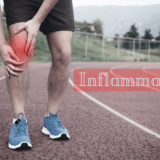Exercise Helps Reduce Stress









Stress is an inevitable part of life. Nearly seventy percent of adults experience stress or anxiety daily, and it interferes at least moderately with their lives. It’s more or less impossible to eliminate stress, but you can learn to manage it, and most people usually do. Stress comes in many forms and produces many symptoms. Mental symptoms range from worry and irritability to restlessness and insomnia, anger and hostility, and even panic. Mental stress can also produce physical symptoms. The physical symptoms of stress are themselves distressing. In fact, the body’s response to stress can be so bad that it produces additional mental stress. During the stress response, then, mind and body can amplify each other’s distress signals, creating a vicious cycle of tension and anxiety.
Physical activity is one of most recommended method by most health care professionals to reduce stress. Virtually any form of exercise, from aerobics to yoga, can act as a stress reliever. If you’re not an athlete or even if you’re out of shape, you can still make a little exercise go a long way toward stress management.
Discover the connection between exercise and stress relief — and why exercise should be part of your stress management plan.
Exercise and stress relief
Exercise increases your overall health and your sense of well-being, which puts more pep in your step every day. Exercise also has some direct stress-busting benefits.
Improved self-esteem is a key psychological benefit of regular physical activity. When you exercise, your body releases chemicals called endorphins. These endorphins interact with the receptors in your brain that reduce your perception of pain. Endorphins are the “feel-good” neurotransmitters that are often referred to as a runner’s high. This is the sense of well-being and euphoria that many people experience after exercise. A rousing game of cricket, badminton or a nature hike also can contribute to this same feeling. It’s meditation in motion. After any fast-paced game or several laps in the pool, you’ll often find that you’ve forgotten the day’s irritations and concentrated only on your body’s movements.
As you begin to regularly shed your daily tensions through movement and physical activity, you may find that this focus on a single task, and the resulting energy and optimism, can help you remain calm and clear in everything you do.
It improves your mood. Regular exercise can increase self-confidence, it can relax you, and it can lower the symptoms associated with mild depression and anxiety. Exercise can also improve your sleep, which is often disrupted by stress, depression and anxiety. All of these exercise benefits can ease your stress levels and give you a sense of command over your body and your life
Regular exercise will bring remarkable changes to your body, your metabolism, your heart, and your spirits. It has a unique capacity to exhilarate and relax, to provide stimulation and calm, to counter depression and dissipate stress. It’s a common experience among endurance athletes and has been verified in clinical trials that have successfully used exercise to treat anxiety disorders and clinical depression. If athletes and patients can derive psychological benefits from exercise, so can you.
How can exercise contend with problems as difficult as anxiety and depression? There are several explanations, some chemical, others behavioral.
Exercise reduces levels of the body’s stress hormones, such as adrenaline and cortisol. It also stimulates the production of endorphins, chemicals in the brain that are the body’s natural painkillers and mood elevators.
Behavioral factors also contribute to the emotional benefits of exercise. As your waistline shrinks and your strength and stamina increase, your self-image will improve. You’ll earn a sense of mastery and control, of pride and self-confidence. Your renewed vigor and energy will help you succeed in many tasks, and the discipline of regular exercise will help you achieve other important lifestyle goals.
Physical activity can:
- Release stress and calm you
- Improve your mood and help you think clearly
- Keep your mind off cigarettes if you’re trying to quit
- Help control your appetite
- Help you lose weight if you’re overweight, or stay at a healthy weight
- Give you more energy and stamina
- Lower your blood pressure
- Increase HDL cholesterol level
- Reduce your risk of developing heart disease and stroke
- Help control blood sugar by improving how your body uses insulin
- Improve your quality of sleep
- Help you feel better about how you look
Tips for choosing the right exercise
- Choose exercise that you enjoy. Exercising should be fun
- Choose more than one type of exercise. Variety is the spice of life. Make sure you vary your exercises so that you don’t get bored.
- Vary the intensity of your exercise.
- Do you prefer group or individual activities?
- Choose to exercise with friends; Knowing that someone is waiting for you to show up could make you more likely to commit to a physical activity routine. Working out with a friend, co-worker or family member often brings a new level of motivation and commitment to your workouts
- Choose exercise options that fit your lifestyle and schedule. Set aside an exercise time each day.
- Exercise in increments. Even brief bouts of activity offer benefits. For instance, if you can’t fit in one 30-minute walk, try three 10-minute walks instead. Interval training, which entails brief (60 to 90 seconds) bursts of intense activity at almost full effort, is known to be a safe, effective and efficient way of gaining many of the benefits of longer duration exercise. What’s most important is making regular physical activity part of your lifestyle.
- Additionally have alternative exercise options that don’t depend on good weather or daylight.
- Choose exercise options that become part of your routine
- Choose an exercise that accommodate any health problems you may have
- Stick with it. If you exercise regularly, it will soon become part of your lifestyle and will help reduce your stress.
- Whatever you do, don’t think of exercise as just one more thing on your to-do list. Find an activity you enjoy. Any form of physical activity can help you unwind and become an important part of your approach to easing stress.
How often should I exercise?
Try to exercise at least 20 to 30 minutes, three times a week and steadily increasing it to four or five times a week is better. Take it easy if you are just beginning. Start exercising for 20 minutes. Then you can build up to 30 minutes. Walk before you run. Build up your fitness level gradually. Excitement about a new program can lead to overdoing it and possibly even injury. If you are using exercise as a time-out from stressors, shorter duration activity can serve the purpose, especially when lack of time or fatigue is a concern. Consider an individual who reports significant work-related stress. Breaking the exercise into two 10- to 15-minute sessions, one before work and one at lunch time when possible, can help combat stress throughout the day. The acute effect of a time-out to reduce stress can be beneficial
CONCLUSIONS
Exercise can be an effective component of a stress management program for many individuals and should be recommended to help those who are dealing with stress. An advantage of incorporating exercise into a stress management program compared with other stress management techniques is the physical and psychological health benefits of exercise. However, it is important to remember that exercise is only one component of a stress management program, and there might be situations that require assistance beyond the expertise of a fitness professional, especially in working with individuals who are experiencing acute episodic or chronic stress. Although exercise might be effective in helping an individual feel calmer who is dealing with these types of stress, it will not solve the problem of major chronic or regular stressors. It may be necessary to refer these individuals to resources who can help them to address their stressors, such as a psychologist or other health care providers.
Popular beliefs notwithstanding, exercise is relaxing.













